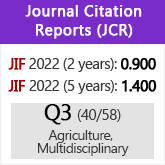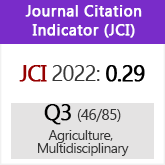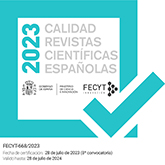Factors related to the adoption of organic farming in Spanish olive orchards
Abstract
The area given over to the cultivation of organic olive trees in Spain has greatly increased in the last ten years. The diffusion of organic farming is desirable since its principles are in line with the aim of the current EU Common Agricultural Policy to harmonise agrarian production and environmental protection, and to encourage the production of quality agricultural goods. This paper characterises organic olive growers and farms in the south of Spain and compares them to their conventional counterparts. Information was gathered in a survey of 322 olive growers. The organic growers differed from their conventional counterparts in that their orchards were less productive and in the more part-time nature of their dedication to agriculture. They were also younger, more involved in management and administration of the holding, attended more courses, were more commonly members of agricultural associations, received more information via the Andalusian Committee for Organic Agriculture (a control, certification and training organization), had a more negative opinion regarding the use of chemicals, and believed that organic agriculture required more time and effort but provided greater returns.Downloads
© CSIC. Manuscripts published in both the printed and online versions of this Journal are the property of Consejo Superior de Investigaciones Científicas, and quoting this source is a requirement for any partial or full reproduction.
All contents of this electronic edition, except where otherwise noted, are distributed under a “Creative Commons Attribution 4.0 International” (CC BY 4.0) License. You may read here the basic information and the legal text of the license. The indication of the CC BY 4.0 License must be expressly stated in this way when necessary.
Self-archiving in repositories, personal webpages or similar, of any version other than the published by the Editor, is not allowed.















